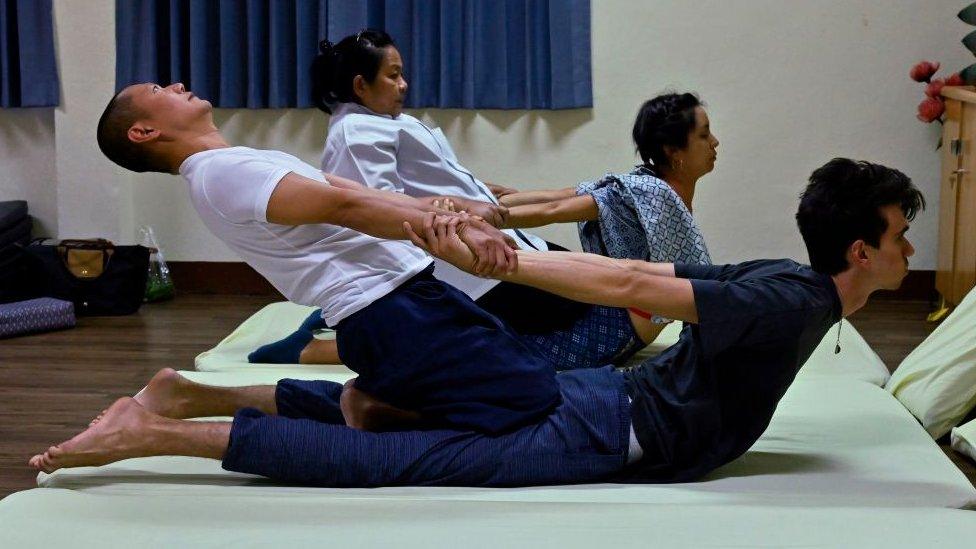Unesco heritage: Traditional Thai massage added to 'cultural heritage' list
- Published

The massages involve a lot of movement and typically see people assuming a series of different positions
The back-cracking traditional Thai massage has been added to a prestigious Unesco heritage list.
Nuad Thai is now part of the Intangible Cultural Heritage of Humanity,
By being part of the list, Thai massage has been recognised as something to be preserved for future generations.
Unesco is the United Nations' agency for education, culture, and science.
The intangible cultural heritage list is separate from the world heritage list, which recognises buildings and sites of prominence.
There are 550 items on the - split into three categories - from 127 countries.
Items are added every year, with this year's committee meeting in Bogota, Colombia.
People in Moscow receiving a Thai massage
Unlike conventional massages, Thai massages involve a lot of movement and typically sees people assuming a series of different positions.
Therapists use not only their hands but sometimes their forearms and knees to apply pressure. There is also no oil involved in Nuad Thai massage.
According to Unesco, the practice has its "roots in self-care in Thai peasant society of the past, [where] every village had massage healers whom villagers would turn to when they had muscle aches from working the field".
Other practices added to this year's list include:
Irish harping
Celestinian forgiveness in Italy
The Carnival of Podence in Portugal
Silat self-defence in Malaysia
According to Unesco, the intangible culture heritage list seeks to recognise things that are "important to preserve for future generations... [like] songs sung and stories told".
It adds that these things "form part of a heritage and this requires active effort to safeguard it".
- Published6 July 2019
- Published30 June 2018